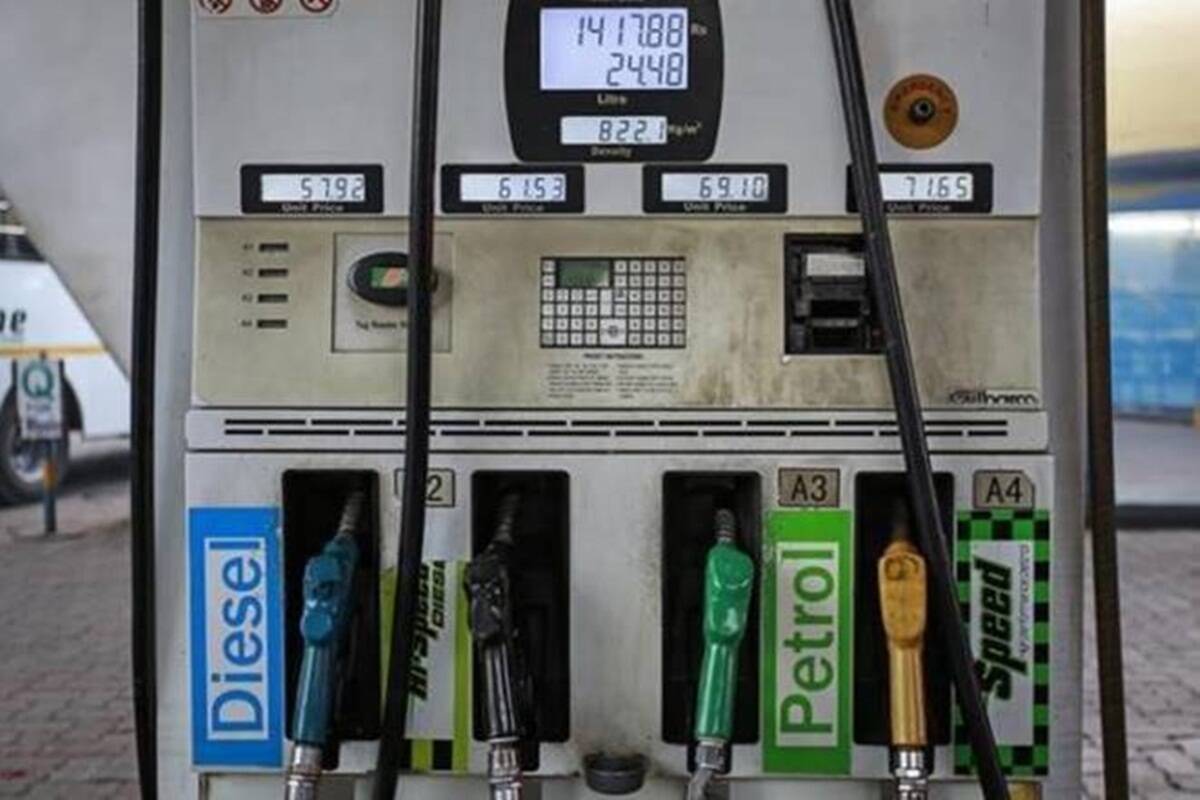Business
Petrol Subsidy Hits N905.27bn, As Oil Rises To $79.71

The Nigerian National Petroleum Corporation (NNPC) spent a total of N905.27 billion on petrol subsidy in eight months amid rising global oil prices, the latest data obtained from the corporation show.
With the international oil benchmark, Brent crude, nearing $80 per barrel on Monday (up 2.07 per cent at $79.71 per barrel as of 7:00pm Nigerian time), the landing cost of imported petrol and subsidy are expected to increase.
The subsidy, which the NNPC prefers to call ‘value shortfall’ or ‘under-recovery’, resurfaced in January this year as the government left the pump price of petrol unchanged at N162-N165 per litre despite the increase in global oil prices.
The Federal Government had in March 2020 removed petrol subsidy after reducing the pump price of the product to N125 per litre from N145 following the sharp drop in crude oil prices.
The NNPC, which has been the sole importer of petrol into the country in recent years, has been bearing the subsidy cost since it resurfaced.
Data from the corporation showed that it incurred N25.37 billion subsidy cost in January, N60.40 billion in February, N111.97 billion in March, and N126.30 billion in April and N114.34 billion in May.
The subsidy cost rose from N143.29 billion in June to N175.32 billion in July but fell to N149.28 billion in August, according to the NNPC.
The August 2021 value shortfall of N149,283,084,869.20 is to be deducted from the September 2021 proceeds due for sharing at the October, 2021 FAAC meeting, the corporation said in a document on Monday.
While marketers have continued to stress the need to allow market forces to determine the pump price of petrol and do away with subsidy, it remains uncertain whether the discussions between the Federal Government and labour unions will lead to the deregulation of petrol prices.
Analysts at CSL Stockbrokers Limited noted that with no provision for petrol subsidy in the 2021 budget, the NNPC had resorted to direct deduction from FAAC remittance.
“These deductions affect the revenues accruable to the federation,” they said in a note on Friday.
According to them, a steep naira devaluation and an increase in global crude prices, which implies an increase in the landing cost of petrol on many occasions, have caused the continuation of the subsidy regime.
The analysts said, “The deregulation of the downstream oil sector remains a politically sensitive discourse. Deregulating the downstream sector, which would in most times involve raising the pump price of petrol with increasing oil price, is always a challenge in a country where the subsidy on petrol prices is seen as the only source of social security.
“We have always expressed concerns that the current timing by the government to get rid of the longstanding subsidies is inopportune.
“In effect, the government may be forced to retain the subsidy, given the impact of the pandemic, high food prices and hike in electricity tariffs on the already squeezed Nigerian consumers.”
In another development, analysts at Goldman Sachs have raised their year-end forecast on Brent crude to $90 per barrel from a previous forecast of $80, citing the aftereffects of Hurricane Ida in the United States and rising demand, particularly in Asia.
The analysts said Ida should prove to be the most bullish hurricane in US history, cancelling the ramp-up in output from the Organisation of the Petroleum Exporting Countries and its allies since July.
“While we have long held a bullish oil view, the current global supply-demand deficit is larger than we expected” they said.
They added that recovery in global demand from the Delta impact was faster than above-consensus forecast, with global supply remaining short of below consensus forecasts.
Business
Fidelity Bank To Empower Women With Sustainable Entrepreneurship Skills, HAP2.0
Business
President Tinubu Approves Extension Ban On Raw Shea Nut Export
Business
Crisis Response: EU-project Delivers New Vet. Clinic To Katsina Govt.
-

 News2 days ago
News2 days agoAmend Constitution To Accommodate State Police, Tinubu Tells Senators
-

 Politics2 days ago
Politics2 days agoSenate Urges Tinubu To Sack CAC Boss
-

 News2 days ago
News2 days agoDisu Takes Over As New IGP …Declares Total War On Corruption, Impunity
-
Business3 days ago
President Tinubu Extends Raw Shea Nuts Export Ban To 2027
-
Business3 days ago
Crisis Response: EU-project Delivers New Vet. Clinic To Katsina Govt.
-
Business2 days ago
President Tinubu Approves Extension Ban On Raw Shea Nut Export
-
Sports2 days ago
NDG: Rivers Coach Appeal To NDDC In Talent Discovery
-
Rivers2 days ago
Etche Clan Urges Govt On Chieftaincy Recognition

